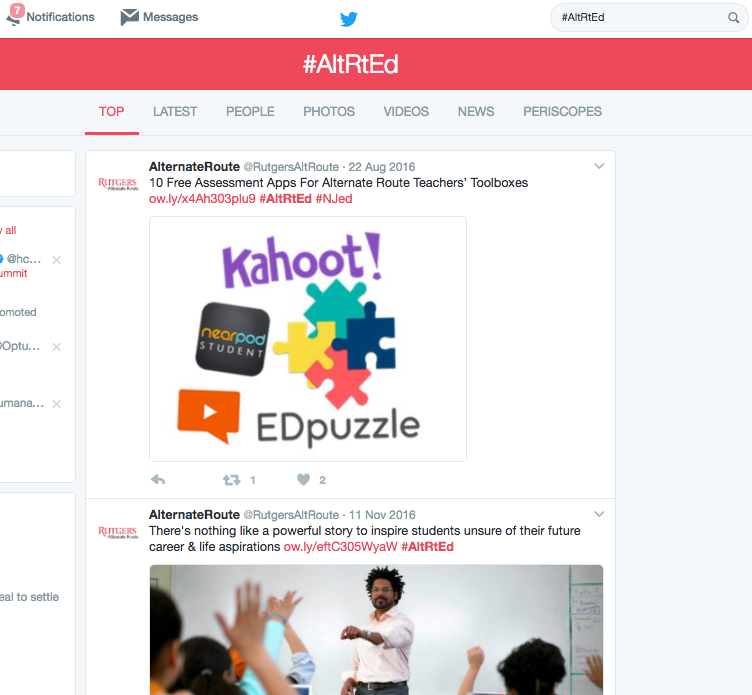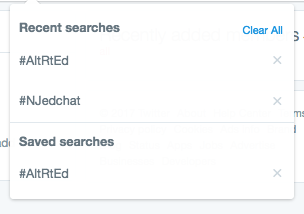The Biggest Gripes That New Teachers Have With Twitter
Digital literacy is a critical soft skill that students need in the 21st Century. Fostering digital literacy in schools can help students become competent consumers of information, adept collaborators with peers, savvy producers of original content and strategic networkers. Despite clear advantages to advancing digital literacy, schools often experience considerable roadblocks to implementing digital literacy initiatives. Accessibility often isn’t the biggest factor blocking this process—more often than not, it comes down to an educator’s own comfort with technology.
That’s right, a teacher’s personal ability to identify digital resources and model digital learning has a direct impact on students’ understanding of how to constructively utilize digital technology for learning and unlock opportunities. Teachers with little to no training on how to integrate digital literacy exercises into the classroom run the risk of compromising their students’ development of valuable soft skills that can produce educational and professional career advantages.
For the past three years, Rutgers Alternate Route has supported new teachers in boosting their digital literacy, by hosting edtech workshops, sharing digital resources on social media, and leading hosted discussions on LinkedIn and Twitter. Social media is arguably the most challenging digital tool for teachers to guide students in navigating. Many school districts block students from accessing social networks when on school grounds. After surveying 165 teachers on our hosted social media discussions, we found feedback on LinkedIn to be overwhelmingly positive. Feedback on Twitter, however, was contentious. While most teachers appreciated our push for them to engage with both networks, a sizeable minority adamantly disfavored Twitter. Three key themes emerged from their objections.
Let’s explore the reasons that teachers view Twitter unfavorably and determine whether these objections can be addressed - perhaps with a bit of problem solving and digital literacy on our part.
PERSONAL PRIVACY CONCERNS
“I do not like to have a presence on social media to protect my privacy.”
Many teachers refrain from using social media, due to concerns of scrutiny from students, parents or even other educators. They also worry that students will attempt to communicate with them inappropriately. While maintaining distance from students is very important for teachers’ professional and personal well-being, teachers with Twitter privacy concerns can still safely and privately reap the professional benefits of social media by following any or all of these steps:
- Set up a new account: The simplest way for teachers to resolve Twitter privacy concerns and establish professional boundaries is to create a Twitter account separate from their personal account.
- Set up a Twitter account under a pseudonym: By refraining from using their full name, teachers can post Tweets without fear of public scrutiny and reap the benefits of live Twitter-hosted education chats such as #NJEdchat.
- Change default account settings so that Tweets are private: With private Tweets, teachers have the ability to accept or deny follower requests from other Twitter users. Only approved accounts will be able to see the teacher’s Tweets. All tweets, including those posted with hashtags, will only appear on the feed of approved account followers. While this protects teachers from unwanted scrutiny, it also limits teachers’ ability to fully engage in live Twitter-hosted education chats.
With these tips, fielding social media requests from students doesn’t have to be one more piece of work that teachers have to bring home with them after a long day. What’s more, teachers can apply their newly acquired digital literacy in advising students on how to protect their identity online and avoid unwanted scrutiny.
INFORMATION OVERLOAD
“I am against social media because I fear that it has too many distractions.”
The Twitterverse is virtually without bound - vast pools of information circulate across the social network each second. For teachers with notoriously little spare time and an abundance of distractions, Twitter can lose appeal despite it being a valuable platform for exchanging ideas and accessing resources.
#Hashtags enable teachers to filter through their Twitter feed and quickly find relevant professional and industry focused information. Many lists of popular education hashtags exist that teachers can consult. After searching for relevant communication streams, teachers can save and follow #hashtag streams that contain valuable information, in a single click.



Twitter hosted education chats move at the speed of the Twitterverse - a speed that’s too fast for some. In our experience, Twitter chats evoke a diversity of opinion in teachers. After participating in a Twitter education chat hosted by Rutgers Alternate Route, one teacher praised Twitter as the perfect medium for the modern teacher, while another disfavored Twitter because they experienced difficulties finding their Tweets in the chat.
It’s all too easy for teachers who are inexperienced with Twitter to feel that their Tweet is a tree falling in the forest—are they being heard—especially when their Tweets aren’t retweeted or replied to. This is a feeling that consistent participation in Twitter chats can dissipate. In the immediate term, teachers can resolve this concern with a simple Twitter hack. With what’s called a mention (@username), teachers can pose follow up questions and share responses with all participants of a chat, while singling out participants whom they would like to engage in one-to-one discussion threads. Singled out chat participants receive an instant notification of Tweets that are directed at them.
TOO FEW CHARACTERS
“Social media provides unparalleled access to resources and proficiency, [which] is expected in the teaching profession. However, I feel social media sacrifices depth over easy access for communication.”
The art of brevity in communication is something that few teachers have mastered. That’s part of what makes them feel at home when leading a classroom—and frustrated when faced with Twitter’s 140 character limit. The good news is that teachers don’t have to forcefully simplify their ideas in order for them to satisfy Twitter’s character limits. It is possible to share ideas in multiple Tweets - the key is to ensure that sentences don’t break between Tweets. This could make it more difficult for readers to follow the communication thread.
IS THERE ANYTHING ABOUT TWITTER THAT TEACHERS LIKE?
Despite commonly cited challenges with Twitter, many teachers are realizing its benefits. Teachers nationwide, including many of our own candidates and program leaders, are using Twitter as a professional development tool, cultivating robust professional learning networks and maintaining professional contact with peers near and far. Beyond professional networking, teachers also consult Twitter as a classroom resource aid, to enhance student engagement, and to connect with parents and the community. As more teachers share how they are leveraging Twitter's benefits, perhaps their more hesitant peers will revisit the idea of experimenting with Twitter and advancing their own digital literacy.

 Heather Ngoma has over 25 years of experience collaborating with educators across New Jersey to drive education innovation. She currently serves as the Director of the Rutgers-GSE Alternate Route Program in the Department of Learning and Teaching, a program which helps career changers, recent college graduates, and other aspiring education professionals become licensed teachers in New Jersey. Follow her on Twitter @heatherngoma.
Heather Ngoma has over 25 years of experience collaborating with educators across New Jersey to drive education innovation. She currently serves as the Director of the Rutgers-GSE Alternate Route Program in the Department of Learning and Teaching, a program which helps career changers, recent college graduates, and other aspiring education professionals become licensed teachers in New Jersey. Follow her on Twitter @heatherngoma.





